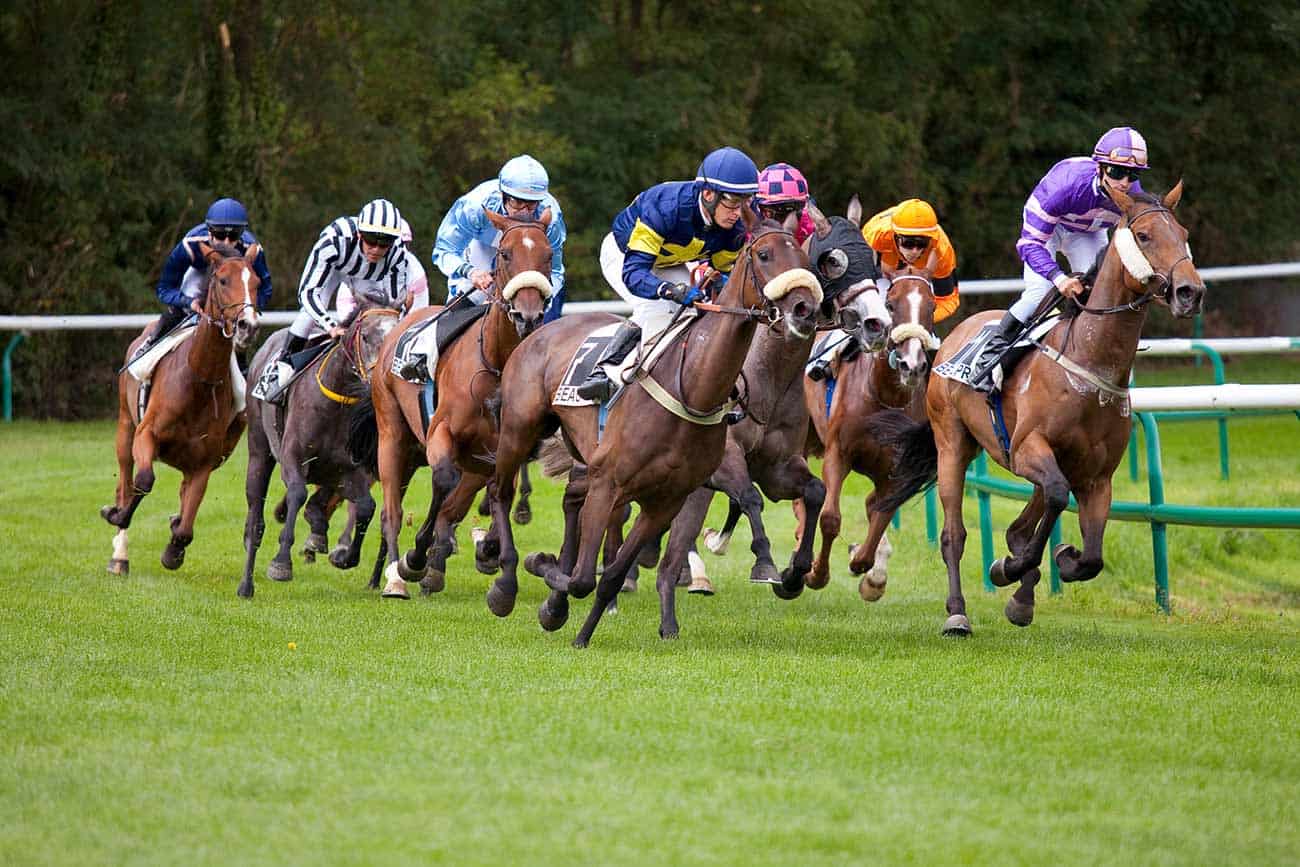Horses will always be majestic and magnificent beasts that are endowed with raw power and speed. Most people are blown away during racing events by the speed of these magnificent creatures. But people do not understand how complex the processes are that allows these racehorse to perform at their best and it takes a lot of work.
You don’t train just the horse, you have to take full responsibility for the horse’s health, mental state, and emotional happiness. Everything matters when caring for a horse that participates in racing.
This guide will cover an in-depth look at different parts of racehorse care such as grooming, feeding, exercising, providing medical attention, and even dealing with stress. Old and experienced riders who have been racing for horses for decades, alongside people who are new to the racehorse scene, will be able to find these pieces of information useful.
Nutrition is an important aspect of caring for a horse
Balance is the most important part of a horse’s nutrition. Racehorses need to be well fed in order to be healthy, maintain lots of energy, and perform during races. With such a hectic lifestyle the horse will need a very carefully planned diet.
Having the right balance of proteins, vitamins and minerals is a must
The ideal diet of a racing horse should include these listed items. Good quality grapes specially grown for producing hay. On top of that they should be mixed with grain based concentrates and soybean meal. With everything combined it ensures the horses have unmatched fiber which improves digestion.
High quality forage like grass or even hay should be used because they are proven to give great energy. Alongside some alfalfa, they are rich in energy and make it easier for the horses to function. Energetic Grade mineral based grains should ensure the horse have sustained levels of energy as well.
• Carbohydrates: Carbohydrates provides the most important energy source that is vital in fueling and training a racehorse during exercising and on race day as well.
• Fats: Oils, for example, can be used to improve a racehorse’s stamina as they are slow burning energy sources.
• Vitamins and Minerals: Supplements created specifically for advancing a horse’s bones and health needed to be added, which included but are not limited to calcium, phosphorus, and magnesium.
Doing Hydration
Sprinkle needs to be equally as available to clean water while being powered by salt and mineral nutrients, as it requires these in excess through sweating during training. Electrolytes are crucial in performing many cell functions and thus aid an horse in achieving peak performance during and after strenuous training, thus preventing muscle cramping.
Socially Custom Nutrition Programs
Customizing an equine diet with an equine veterinarian or specialist is highly preferred above having a professional work on tailored diets without guidance for concern that might be overlooked.
Manege and Train: Improve Performance and Muscles
Different means of training should be implemented for each racehorse, as all equine athletes are unique in their set of skills and can greatly benefit from custom training.
Flexible Program Change
Enhancing strength and muscles in a horse while ensuring safety is best accomplished by starting mid-level then slowly dialing up intensity of sessions over a period of time and tracking the horse’s progress adapting.
Short rest period during high intensity physical activity
This exercise method is accomplished best through incorporating both high tempo exercises and long rest windows in between: use activity in the set, then cease activity for the duration of the set.
This develops cardiovascular fitness and endurance by acclimatizing the horse to the pace of race.
Cross Training
Swimming, riding trails, groundwork, or any other activity that enhances versatility is beneficial in reducing monotony. These exercises not only enhance stamina but also improve flexibility while minimizing the possibilities of overtraining.
Rest and Recovery For Peak Performance
Remember to allow your horse adequate rest and recovery time during peak training moments to enable muscle repair damage. Recovery time is critical for muscle tissue repair, and overusing a horse can be detrimental to its stamina, health, and even mental wellbeing.
Veterinary Care: Prioritizing Health and Longevity
While racehorses may appear in their peak fitness levels, cross-training should be done while keeping up with regular vet checkups. Injury management and preventive measures should always be noted to maintain and improve overall well-being.
Routine Veterinary Check-Ups
Monitoring heart rate, checking respiratory functions, and assessing mobility are essential for evaluating joint health. These critical examinations can uncover underlying conditions that could lead to serious injuries if not handled on time.
Vaccinations and Parasite Control
Use updated vaccines against infectious ailments to keep your horse healthy. In addition, maintain parasite control strategies like deworming to ensure a healthy digestive system and avoid infection from parasites.
Hoof Care
This timeless quote “ without a hoof, there’s no horse,” emphasize the critical importance of maintaining hoofs.
Preventative Maintenance
Regular appointments with a professional farrier will ensure your horse’s hooves are healthy, balanced, and expertly shod.
Injury Prevention
In training and racing, provide quality protective equipment such generous tendon boots and bandages to mitigate injuries.?> As with any injury, all signs of lameness and discomfort should be evaluated immediately by a vet.
“A Happy Horse is a Healthy Horse” – Mental Well-Being
There is a great deal of emphasis placed on the physical well-being of racehorses; however, their emotional and mental needs should also be taken into consideration. A horse’s well-being can immensely affect its behavior, willingness to cooperate, and performance.
Stress Management
Racing, traveling, and running in crowded environments can be a major source of stress for horses. Provide rest, dun sound and activity downtime, and keep rest periods routine and plentiful.
Socialization
Inhand or loose, horses are social animals. Calming horse companions should be provided to prevent feeling segregated or anxious.
Enrichment Activities
Allowing horses to interact with pony-safe toys or slow-feeder hay nets, and providing novel experiences helps to stimulate and actively challenge horses’ minds on a daily basis.
Valuable bonding time
Bonding with your horse goes beyond training. Allocate time throughout the day for quality interactions.
Engaging in hand-walking, quiet time together, or grooming strengthens the bond and trust between you and the horse, which will yield positive results in the racetrack.
Recurring BBQs, Ascending Career Paths
Looking after a racehorse isn’t a simple task, especially considering the several aspects involved outside of the track. Caring for the horse’s physical, social, and mental state is imperative. There’s proper nutrition, tailored exercise plans, regular check ups from the vet, and addressing emotional wellbeing which are not just crucial for the horse’s success but also essential for investing in their joy.
When a racehorse’s well-being is taken into consideration, They tend to perform better, be more responsive to training sessions, and have an overall improved quality of life. Never forget that small steps go a long way and should be encouraged when making efforts to ensure the horse is doing well.
Want to make sure that your racehorse is at their peak performance? Collaborate with a professional from each field including trainers, nutritionists, veterinarians, and farriers and design a tailored schedule for the horse. Providing a foundation built on love and care enables these results to be achieved.



